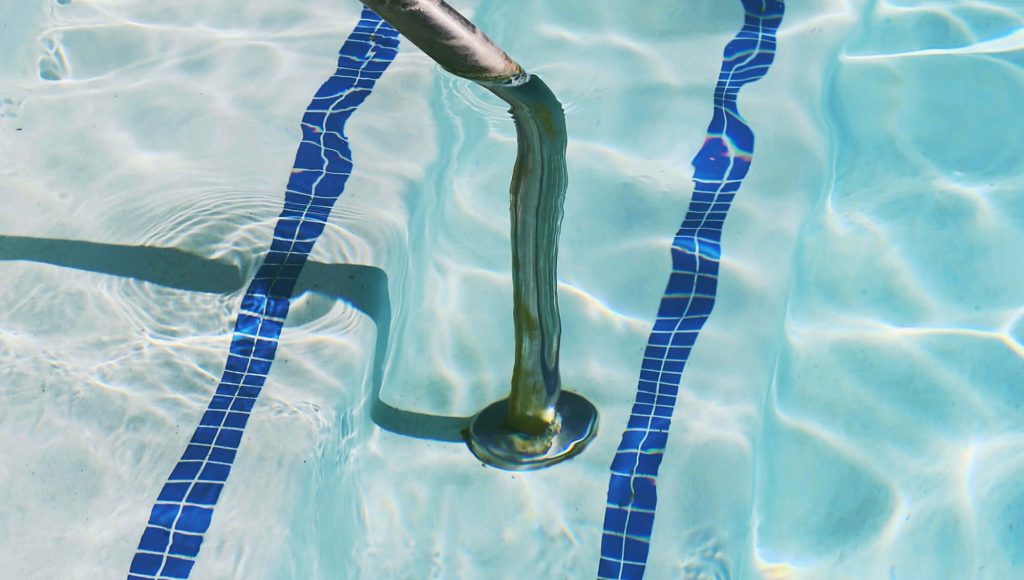Governor Kemp’s latest Executive Order, Empowering a Healthy Georgia, issued on April 30, 2021 (“April 30th Order”), extends some of the guidance and mandates applicable to community associations covid-19 restrictions from his prior March 31st Executive Order , but eases operational restrictions for gyms and fitness centers as well as for food service areas.
Also, for the first time since last year, the Georgia Department of Public Health has significantly revised the Guidance that applies to public swimming pools, which include community association pools.
Public Health State of Emergency Continues and Social Distancing Strongly Encouraged, but Not Required
On April 23, 2021, Governor Kemp extended Georgia’s Public Health State of Emergency until May 30, 2021.
However, the Governor’s previous mandate that all residents and visitors of Georgia shall practice Social Distancing, by keeping six feet of separation between themselves and other people outside their home, has been relaxed. In his April 30th Order, the Governor strongly encourages all residents and visitors of Georgia to practice Social Distancing.
Mitigation Measures Still Required
All Organizations in Georgia, which include community associations, that continue in person operations must continue to implement measures which mitigate the exposure and spread of COVID-19. Such measures may include the measures listed on Page 12 of the April 30th Order.
The following measures are most applicable for HOAs and condominium associations:
- Any measures that have been proven effective to control the spread of COVID-19;
- Screening and evaluating Workers who exhibit Symptoms of COVID-19;
- Requiring Workers who exhibit Symptoms of COVID-19 to not report to work or to seek medical attention;
- Posting signage at the entrances to the facility stating that individuals who have been diagnosed with COVID-19, have Symptoms of COVID-19, or had contact with a person that has or is suspected to have COVID-19 within the past fourteen (14) days and have not completed the Post-Exposure Quarantine Protocol shall not enter the facility;
- Enhancing sanitation as appropriate;
- Disinfecting frequently touched surfaces regularly, including, but not limited to, PIN entry devices, signature pads, door handles, and light switches;
- If the Organization engages volunteers or has members of the public participate in activities, prohibiting volunteering or participation in activities for persons diagnosed with COVID-19, having exhibited Symptoms of COVID-19, or having had contact with a person that has or is suspected to have COVID-19 within the past fourteen (14) days and having not yet completed the Post-Exposure Quarantine Protocol; and
- Ensuring ventilation systems operate properly and increasing circulation and purification of air within facilities as practicable.
Changes to Requirements for Gyms and Fitness Centers
Notably, the requirements mandated under the Governor’s March 31st Executive Order, pertaining exclusively to the operation of all gyms and fitness centers (including any pools located inside gyms and fitness centers) have not been included in his April 30th Order. However, the requirement that Organizations implement measures of its choosing to prevent the spread COVID-19 extends to a community association’s gyms and fitness centers. Accordingly, community associations with gyms or fitness centers should consider implementing the five measures [Julie McG6] outlined in the March 31st Executive Order for gyms and fitness centers.
Recommendation for Outdoor Amenities
As with past Orders, the latest Order does not expressly address the operation of outdoor amenities, like sport courts, pools, pool decks, and playgrounds; however, those outdoor amenities must comply with the general requirement to implement community association covid-19 restrictions. Accordingly, the five measures listed in the March 31st Executive Order should be considered for outdoor amenities as well.
Changes to Requirements for Opening and Operating Spaces Where Food Is Served
The April 30th Order continues to require communities with facilities where food is served to implement certain measures. The Order has eliminated some of the mandates of the March 31st Order but continues to require seven measures that must be implemented for community associations to open or operate any amenity where food is served.
The April 30th Order has removed the requirements for spacing of 48 inches between patrons in a food service area, providing service only to seated patrons, and establishing pathways for patrons’ ingress and egress.
Implementing Mitigation Measures Helps Protect the Association from Liability
Because community associations remain required by the Governor’s Order to implement measures to curb the spread of COVID-19, not implementing any measures is ill advised if the community association wants the protection afforded by the Georgia COVID- 19 Pandemic Business Safety Act (extended until July 14, 2022), which limits claims for COVID-19 liability except in cases of gross negligence, willful and wanton misconduct, reckless infliction of harm, or intentional infliction of harm. Failure to implement any measures to mitigate the spread of COVID-19 would violate the Governor’s Order and could lead to a finding that an association acted with gross negligence or willful and wanton misconduct.
Georgia Adopts CDC Guidance for Public Swimming Pools
The Georgia Department of Public Health (GDPH) has significantly revised its COVID-19 Guidance for the 2021 Public Swimming Pool Season . GDPH Guidance applies to community association pools. The new Guidance eases operational requirements now that more is known about the transmission and spread of COVID-19 and withdraws the document published on GDPH’s website last year which required the discontinuation of organized sports. Most significantly, the new GDPH Guidance now recommends that each pool operator incorporate the Centers for Disease Control and Prevention’s Guidance for Public Pools, Hot Tubs, and Water Playgrounds (CDC Guidance) to reduce the exposure and spread of COVID-19.
The new Guidance provides that pool owners and operators should follow the most recent Governor’s Executive Order, specifically reiterating that each Organization shall implement measures which mitigate the spread of COVID-19.
The Bottom Line on Community Associations Operating Outdoor Swimming Pools in 2021
Subject to further Executive Orders and/or new CDC Guidance, community associations must continue to implement measures for their swimming pool and other amenities to prevent the spread of COVID 19. Since community association covid-19 restrictions are determined by each association’s board of directors, boards will have to analyze their facilities and decide the most appropriate measures to implement. The CDC Guidance recognizes that and provides suggested recommendations for consideration in deciding which measures to implement, acknowledging that the measures needed will depend on the size of each swimming pool and the average bathing load. The adequacy of the measures implemented will be scrutinized if a person claims to have contracted the virus on common property, so each board should ensure it has reasonably met the requirement to mitigate the exposure and spread of COVID-19.
Contact the HOA Attorneys at NowackHoward to Help Advise Your Board of Directors
At NowackHoward, we understand the importance of residents in community associations having access to their amenities and common areas and the urge to open these facilities this spring and summer. As always on our blog, this post is general information, and it is not legal advice. Your board of directors should contact your community association attorney for legal advice regarding opening association common areas and to discuss the specific details and issues for your community, as well as the most current government mandates and guidance.
Our HOA attorneys represent condominium associations and HOAs throughout Georgia. To learn more about our practice, HOA attorneys or how we can help guide your community, contact us at (770)-863-8900 or email us at info@nowackhoward.com.
©2021 NowackHoward, LLC. Unless otherwise stated, all contents of this website are the sole property of NowackHoward, LLC and may not be reproduced in whole or in part without express written consent.


